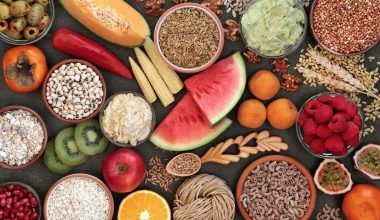The Dawn Phenomenon: Causes, Effects, and Management
The dawn phenomenon is a natural rise in blood sugar levels that occurs in the early morning hours, typically between 3 AM and 8 AM. This happens due to hormonal changes that trigger the liver to release glucose into the bloodstream. While this process is normal, it can be problematic for individuals with diabetes or insulin resistance, as their bodies struggle to regulate the spike effectively.
Why Does the Dawn Phenomenon Occur?
The dawn phenomenon occurs because the body prepares for waking up by releasing hormones such as cortisol, growth hormone, epinephrine, and glucagon. These hormones signal the liver to increase glucose production to provide energy for the day ahead. In people with healthy insulin function, insulin balances this glucose surge, keeping blood sugar levels stable. However, individuals with diabetes or insulin resistance may experience high fasting blood sugar levels because their bodies do not produce enough insulin or cannot use it effectively.
Who is More Likely to Experience the Dawn Phenomenon?
- People with Type 1 or Type 2 Diabetes – Insulin resistance or deficiency prevents the body from managing the glucose spike properly.
- Individuals with Prediabetes – Insulin sensitivity is already compromised, making them more prone to high morning blood sugar levels.
- People with High-Stress Levels – Chronic stress can lead to elevated cortisol levels, contributing to the dawn phenomenon.
- Nighttime Snackers – Eating high-carb or sugary snacks before bed can worsen the morning glucose surge.
Effects of the Dawn Phenomenon
Uncontrolled dawn phenomenon can lead to:
- High fasting blood sugar levels
- Increased insulin resistance over time
- Higher risk of diabetes complications, including nerve damage, kidney disease, and cardiovascular issues
- Difficulty in blood sugar management throughout the day
How to Mitigate the Dawn Phenomenon
Managing the dawn phenomenon requires lifestyle adjustments, dietary changes, and proper medication management. Here are effective strategies:
1. Monitor Blood Sugar Levels
- Check blood sugar before bed, during the night (if needed), and upon waking up to track patterns.
- Adjust medication or insulin doses if prescribed by a doctor.
2. Avoid Late-Night High-Carb Snacks
- Eating carbohydrate-heavy meals or snacks before bed can worsen morning spikes.
- Opt for protein or fiber-rich snacks like Greek yogurt, nuts, or a boiled egg to stabilize glucose levels.
3. Drink Apple Cider Vinegar (ACV) Before Bed
- ACV can help lower fasting blood sugar by improving insulin sensitivity and slowing glucose production in the liver.
- How to take it: Mix 1 to 2 tablespoons (15-30 mL) of ACV in 8 oz (240 mL) of water and drink it 30-60 minutes before bed.
- This method is especially effective when paired with a protein-rich snack to further stabilize overnight glucose levels.
4. Engage in Regular Physical Activity
- Exercise helps improve insulin sensitivity, making it easier for the body to manage blood sugar levels.
- A 10- to 15-minute walk after dinner can help lower blood sugar before bed.
5. Adjust Medication Timing (If Needed)
- Some diabetes medications may need to be adjusted to target morning blood sugar spikes. Consult a healthcare provider before making any changes.
6. Improve Sleep Quality
- Poor sleep can increase stress hormones like cortisol, which contributes to high blood sugar levels.
- Aim for 7-9 hours of quality sleep and maintain a consistent sleep schedule.
7. Stay Hydrated
- Drinking plenty of water helps the kidneys flush out excess sugar.
- Herbal teas or water with lemon can be good nighttime hydration options.
Final Thoughts
The dawn phenomenon is a common issue for people managing diabetes or insulin resistance. While it cannot always be eliminated, strategic lifestyle and dietary changes—such as drinking apple cider vinegar before bed, adjusting meal timing, and staying active—can significantly help in reducing its impact. By consistently monitoring blood sugar levels and making mindful choices, you can take control of morning glucose spikes and improve overall health.





